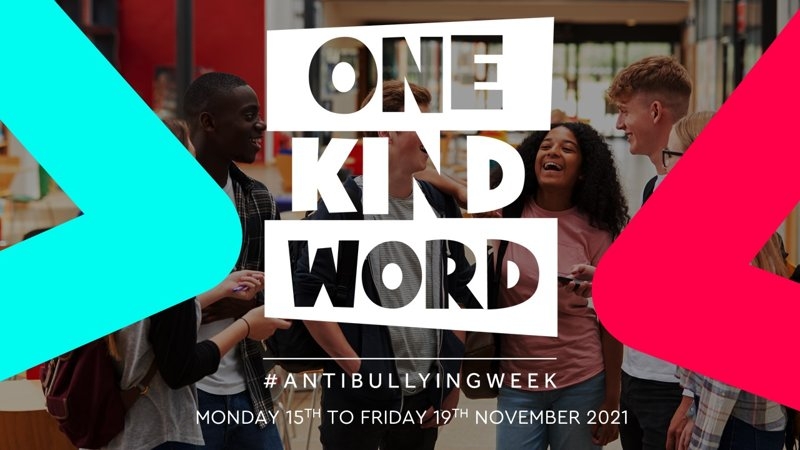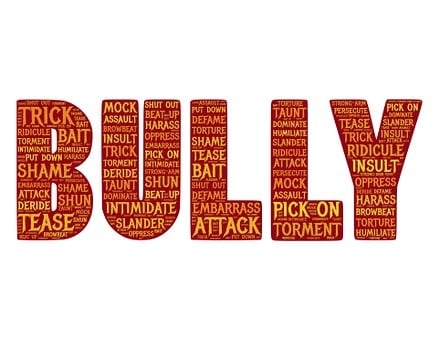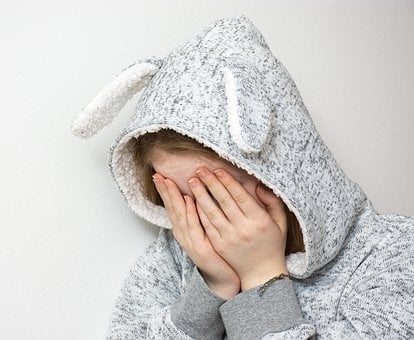Anti Bullying Week - Kindness fuels Kindness!
November 15th, 2021
1189 Views

Bullying is described as unwarranted and aggressive behaviour among school age children. It is a sad fact that 22% of children experience bullying at some time and it comes in many forms including threats, spreading rumours, exclusion from social groups and physical bullying which includes kicking, pinching, hitting and spitting. Children who bully use their power – physical, social or verbal- to intimidate others.
If your child tells you that they are being bullied, it is very important for them to know that they have done absolutely the right thing. Very gently discuss with your child how they feel about things as they are likely to feel sad, hurt and confused and their most important question will be ‘why me’. Has your child told their teacher? It is very important that he/she knows what is going on so you need to see them quickly and explain that your child is going to be standing up to the bully and that they will need the teacher’s support in this.
If your child tells you that they are being bullied, it is very important for them to know that they have done absolutely the right thing. Very gently discuss with your child how they feel about things as they are likely to feel sad, hurt and confused and their most important question will be ‘why me’. Has your child told their teacher? It is very important that he/she knows what is going on so you need to see them quickly and explain that your child is going to be standing up to the bully and that they will need the teacher’s support in this.

What can you do as a parent?
Your child may well feel very intimidated and not want to stand up for themselves so it is important that they know that bullies are really cowards and that if your child stands up to them consistently them will get fed up and they will leave your child alone.
The key to success is that your child must try not to show any emotion to the bully as this gives them a sense of power. Hard though it is, they should not get angry or tearful as this gives the bully pleasure I found that it was good to do some role playing with me as the bully and my son standing up to me. I was surprised and delighted how much confidence this gave my son who was being prevented from leaving the toilet block by one aggressive and very strong little lad who calmly told the bully there was a huge spider on the wall next to him – and there was!
Here are five really good ways to deal with bullies:
Your child may well feel very intimidated and not want to stand up for themselves so it is important that they know that bullies are really cowards and that if your child stands up to them consistently them will get fed up and they will leave your child alone.
The key to success is that your child must try not to show any emotion to the bully as this gives them a sense of power. Hard though it is, they should not get angry or tearful as this gives the bully pleasure I found that it was good to do some role playing with me as the bully and my son standing up to me. I was surprised and delighted how much confidence this gave my son who was being prevented from leaving the toilet block by one aggressive and very strong little lad who calmly told the bully there was a huge spider on the wall next to him – and there was!
Here are five really good ways to deal with bullies:

Your child should assert themselves
Instead of shrinking away from the bully, they should face them and use a strong confident voice when they tell them- ‘hey stop making fun of me’. This is of course, easier said than done so if you can practise this with your child it will make it easier for them.It also works well for them to ask the bully: ‘ Why are you saying that? Are you trying to hurt my feelings?’
Use ‘I want’ as it is a powerful phrase
This is another effective way to readdress the power balance with a bully. Your child should as coolly as possible say to the bully ‘I want you to leave me alone’ or ‘I want you to stop saying nasty things’. Again, if you can practise this with your child it will really boost their confidence. This is most effective if your child can speak slowly and confidently.Say the unexpected to the bully!
Whatever your child is being bullied about they should totally agree with the bully as they will find this very unnerving! If the bully is taunting your child about them wearing glasses and being ‘four eyes’ your child should reply with a quip such as ‘oh yes, my Dad always calls me ‘four eyes’ because my eyesight is bad and I need glasses, but with them I see things much better than many people’.The aim of the bully is always to get a reaction and if they say something really horrid like ‘you are so stupid’ and all they get as a response is ‘really’ or ‘thanks for letting me know’ with no sign of any emotion, they will soon get bored!
Pretend the bully is invisible
Much of the power felt by a bully is because they can see that they are upsetting their ‘victim’. A great way for your child to handle the situation is for them to be ultra cool and pretend that the bully is invisible and they cannot see them! If your child walks away and doesn’t even acknowledge their presence and then gets involved with something else, this will leave the bully ‘high and dry’.Diffuse the situation with humour
A study undertaken in the UK found that children who were being taunted and bullied could turn the situation in their favour by using jokes and laughter in a positive way. The bully may well be saying how stupid they are at Maths and their response can be: ‘ Yes, I certainly am but, I am brilliant at jokes’…. And they then quickly reel off a few really funny ones. Apparently, this approach worked surprisingly well you and your child will have fun learning the jokes together.It certainly is a sad moment when your first child admits that they are being bullied, but if you can bolster their self-esteem and teach them how to deal with bullies it will be a good lesson learned. Unfortunately, they could well come across bullies even in their adult life, so having the confidence to deal effectively with them is a real bonus.
● Anti-Bullying Week is taking place from 15-19 November 2021 in the UK and the theme will be ‘One Kind Word’ As the organisers explain: ‘One Kind Word can be a turning point. It can change someone’s perspective. It can change their day. It can change the course of a conversation and break the cycle of bullying.
Best of all, one kind word leads to another. Kindness fuels kindness. We can all play a part in a chain reaction that powers positivity.
We think this upbeat message will resonate with children who know all too well how unkind words can hurt and undermine them’. #antibullyingweek
www.anti-bullyingalliance.org.uk/aba-our-work/news-opinion/one-kind-word-announced-theme-anti-bullying-week-2021
Chrissie x

